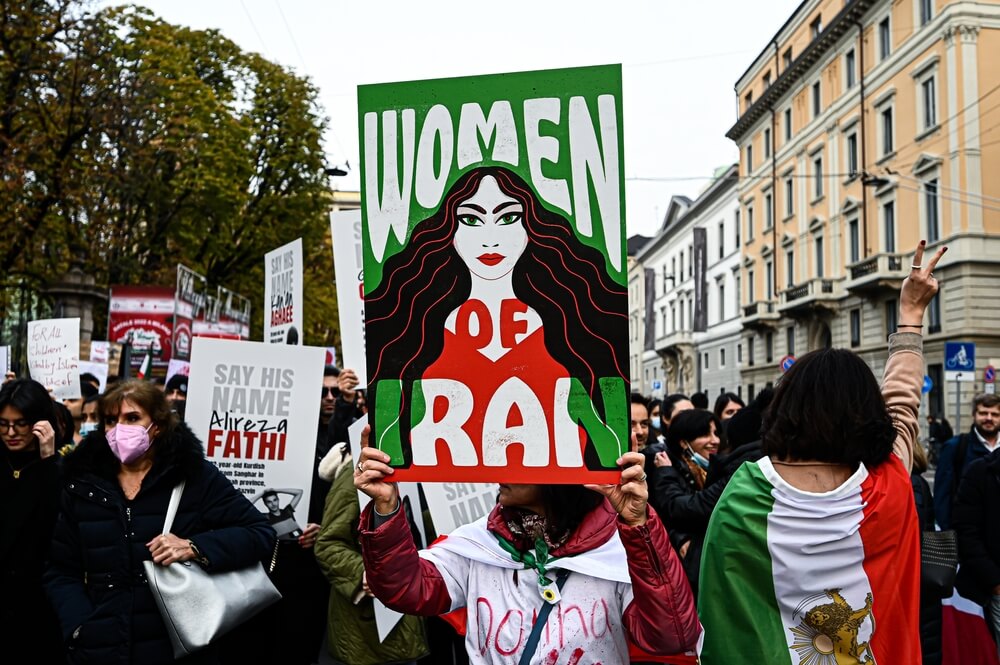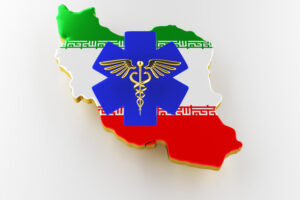Despite being portrayed as a reformist by some in the West, Tehran’s new president, Massoud Pezeshkian, is far from a champion of peace, stability, progress or equality. His career has been marked by a staunch commitment to the regime’s oppressive policies, particularly those targeting women and girls. It is an attitude that is poised to intensify under his leadership.
A long history with the regime
During the Iran-Iraq War from 1980 to 1988, Pezeshkian served as a combatant with the Islamic Revolutionary Guard Corps (IRGC), the security force that defends the country’s Islamic establishment, holding both combat and medical positions. His time with the IRGC solidified his loyalty to the regime’s most oppressive elements, a loyalty that would define his career.
In the 1990s, Pezeshkian aligned himself with then-President Mohammad Khatami and rose to the position of minister of health. During the student protests in 1999, he sided with the regime as they arrested and killed students across various campuses. While some of his colleagues resigned, he opted for silence and supported Khatami’s choice of suppression over dialogue with students.
From 1978 to the early 1980s, he pioneered a campaign that forced the compulsory veiling of women, starting with female medical students. This was not about religious devotion, but rather it was about control, aiming to constrain women who sought to contribute to society as physicians. As physicians, we can attest to the severe impact of such policies on Iranian women and girls.
A track record of repression of women
Pezeshkian’s alignment with the regime’s oppressive stance regarding women has continued unabated. In 2003, following the arrest, torture, rape and murder in custody of Iranian-Canadian photojournalist Zahra Kazemi, Pezeshkian defended the atrocity by citing the cause of death as intracranial hemorrhaging with no visible signs of injury. This blatant denial of the truth and his complicity in covering up such a crime underscored his commitment to protecting the regime at all costs, even in the face of international outrage.
Pezeshkian has consistently dodged and deflected blame onto women and protestors, accusing them of insufficient “education” and non-compliance with the regime’s agenda. He is on record saying, “Women should be in a position where they can play a constructive role,” only to urge the female morality police to elevate their oppression of other women and girls. His silence on crimes against women by the IRGC, namely the case of slain protester Nika Shakarami in 2022, or the rape of girls before their execution since the 1980s, is part and parcel of Pezeshkian’s position on women and girls.
In 2019, he remained silent during the massacre of 1,500 protesters, including 400 women and girls, during a nationwide uprising. His silence in the face of such brutality speaks volumes about his allegiance to the regime’s draconian policies.
A nascent presidency that targets women
In the first three weeks of his presidency, which began July 28, the regime executed 82 individuals, including six women. According to an August report by Human Rights Watch, there is an alarming surge of executions in Iran.
In late July, a 31-year-old woman, Arezou Badri, was shot by police in Nour County, northern Iran, for violating hijab rules. Despite her critical condition, suffering from severe injuries to her spine and lungs, Badri was coerced into giving a forced confession while in extreme pain, unable to sit or eat.
Iran’s state security forces also forced her close family members, including her sister, to make coerced confessions. Badri’s tragic case exemplifies the brutal reality that women in Iran continue to face under Pezeshkian’s regime—a reality that is enforced and perpetuated by the IRGC and other regime forces.
Despite his public criticisms of the morality police during his campaign, Pezeshkian’s administration has intensified oppressive misogynous measures. . The public outcry, including the spontaneous campaign on social networks using the hashtag “war against women,” reflects the deepening anger among Iranians, especially as these violent confrontations continue with impunity.
The path forward
Under Pezeshkian’s leadership, the systemic oppression of women in Iran is set to continue. His administration has already demonstrated a willingness to use the most brutal tactics to silence opposition and control women, signaling another dark period ahead for human rights in Iran.
Given his record, Pezeshkian should be blacklisted by the U.S. government for his role in oppressing women and his alignment with the country’s top official, the so-called “supreme leader,” and the IRGC, which has been designated by the State Department as a Foreign Terrorist Organization.
Pezeshkian is not a reformist, nor is he a moderate. He is a key architect of the regime’s oppressive strategies, and his presidency is a direct threat to the rights and freedoms of all Iranians, especially women and girls.







